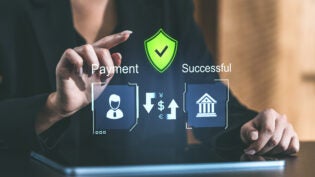
However, technology can severely cripple a business if certain precautions aren’t taken. One of the biggest hindrances technology has on business is in the form of chargebacks.
What Are Chargebacks?
Usually within just a few shorts months of entering the business world, most owners are confronted with a chargeback. If they didn’t know what a chargeback was before, they quickly come to loath these financial nightmares.
Basically, a chargeback is a credit card refund. Originating as a form of consumer protection, chargebacks were intended as a safeguard against fraud. Unauthorized purchases could be reversed and cardholders wouldn’t lose their hard earned money.
While that premise still holds true today, the idea of transaction reversals has grown popular with criminals and fraudsters. Now, chargeback fraud is on the rise—and business owners stand to lose big money.
One of the most influential factors in the chargeback process is technology. Without certain advances in the tech world, fraudsters wouldn’t be nearly as successful as they are today.
As it is, technology can make or break a company. Here is how the latest technological advancements have cost business owners big bucks.
Digital Goods
For many merchants, digital delivery seems like a good idea. However, when you look at the practice from a chargeback point of view, it is extremely dangerous—and expensive.
Chargeback fraud is prevalent in every industry, but it is especially popular with digital delivery. That’s because it is super easy for fraudsters to purchase an item and then later claim it was never delivered (even if it was).
Merchants always bear the burden of proof when it comes to chargebacks. To successfully refute the charge, the merchant must have written documentation that the transaction was authorized and the product was delivered successfully.
For a merchant who sells digital goods, providing all that documentation is nearly impossible. Therefore, it is highly unlikely for a merchant to win a chargeback representment.
If you are an online merchant who provides digital delivery of goods, here are a few tips that might give you a fighting chance when it comes to transaction disputes:
- Require a digital signature (this will deter friendly fraud, but won’t do much to prevent unauthorized purchases)
- Consider using Bitcoin
- Use an activation key
- Put an access code in the cloud—this will prove the customer did take delivery
According to statistics in the 2013 Javelin Strategy & Research Identity Fraud Report, tablet users are 80% more likely to be victims of identity fraud than all other consumers.
As more and more credit card numbers are being stolen via tablets, more and more criminals will be placing unauthorized purchases. Each one of those unauthorized purchases will be accompanied by a chargeback.
Despite attempts to deter criminals, fraud has always been a part of business. With the increased popularity of tablets and other mobile devices, the amount of fraud has skyrocketed.
To prevent these unauthorized transactions, business owners must be vigilant about detecting potentially fraudulent transactions. Visa has issued a list of possible indicators of fraud. Review this list and be diligent about reviewing suspicious transactions.
Like we mentioned before, technology can be both good and bad. Fortunately, the good technology can help counteract the effects of the bad technology.
Consider using various tools to help stop unauthorized transactions from happening. Things like Card Verification Value (CVV), Address Verification Service (AVS), Verified by Visa, and MasterCard SecureCode can help.
Mobile Wallets
According to Generator Research, mobile payments are expected to expand by 600% in 2014. That would equal 490 million transactions and nearly $650 billion in sales.
If you are in the tech industry, that sounds pretty exciting. We all get pumped about new technologies that become main stream.
But if you are in a chargeback mentality, mobile wallets are terrifying.
Why is this seemingly successful technology so frightening? Mostly, the downside of mobile wallets lies in its newness; we can’t predict with absolute certainty what will happen in the future.
However, we can be sure of one thing. Hackers and scammers are bound to target this new technology; scammers take advantage of weakness in every industry—technology is no exception.
Sure, traditional credit card processors can be hacked. But it would take quite a bit of effort to breach a multi-million dollar, well-established company like that. These new mobile wallet startups, on the other hand, would me much easier to infiltrate.
What is a business owner to do? Move forward with caution. Do tons of research before jumping on the mobile wallet bandwagon. Also, don’t toss your traditional processor. If you do run into trouble with mobile wallets, you can dump them and go back to the old fashioned way of doing things.
It’s Not All Bad
We aren’t saying all technology is bad. And we aren’t saying you should avoid it just to keep chargeback ratios in check. We’re simply saying technology has introduced a curveball into the world of business—and business owners need to be aware of the role technology plays when it comes to protecting their bottom line.
Do you have an example of how technology impacted your company’s chargeback ratio? Sound off in the comment section below!
 Author: Jessica Adams works for Chargebacks 911, a company that helps merchants prevent chargebacks—and fight the ones that slip through the cracks. She recently shared this blog post about how to prevent chargebacks. The biggest part of her job involves educating merchants about the dispute process. Unless they know what they’re up against and get proactive about preventing chargebacks, merchants stand to lose a lot of profits.
Author: Jessica Adams works for Chargebacks 911, a company that helps merchants prevent chargebacks—and fight the ones that slip through the cracks. She recently shared this blog post about how to prevent chargebacks. The biggest part of her job involves educating merchants about the dispute process. Unless they know what they’re up against and get proactive about preventing chargebacks, merchants stand to lose a lot of profits.
3636 Views












